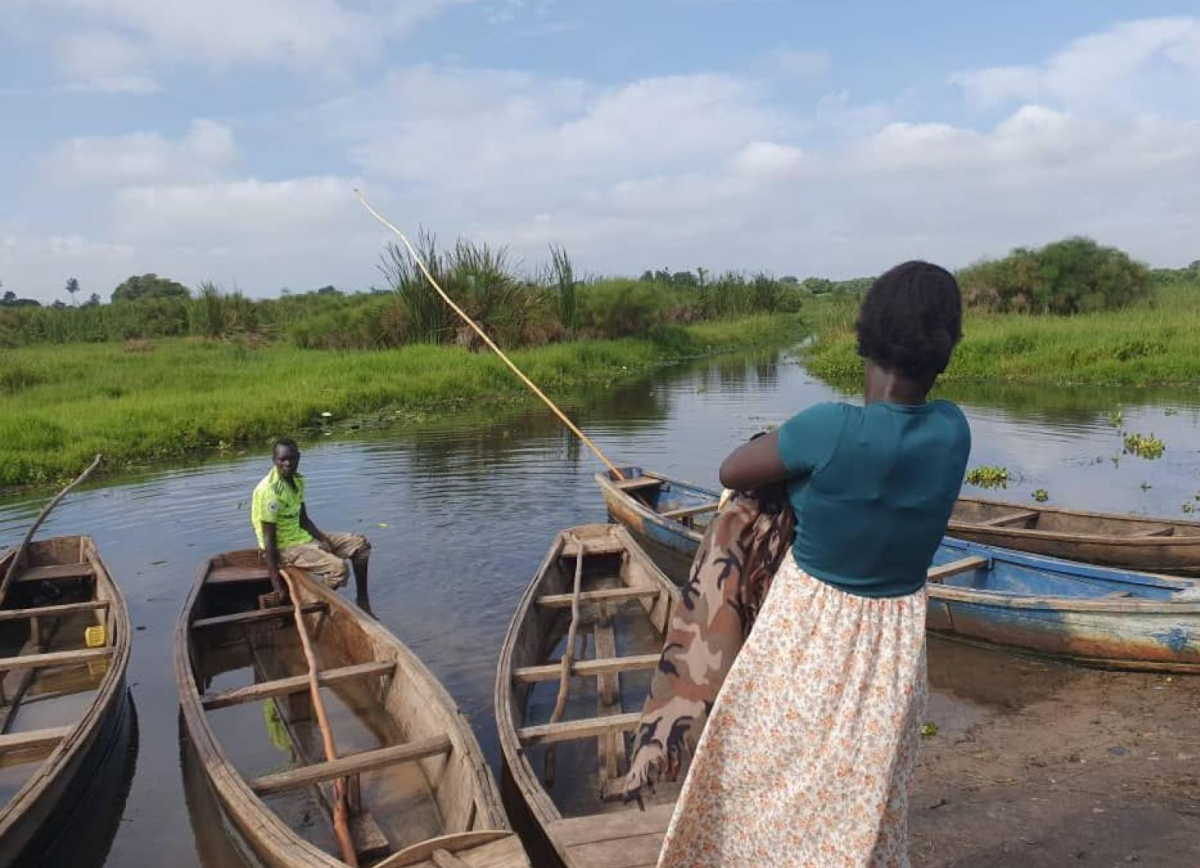Rising water levels on the River Nile have cut off eight villages in Amor East Ward, Pakwach Town Council, forcing expectant mothers to risk delivering without medical assistance as they struggle to reach health facilities.
A 25-year-old mother, Kisarac Unice Ukwong, was forced to give birth on a boat at midnight as her relatives paddled toward Pakwach Health Centre IV. The resident of Patwe Gudi says she experienced excessive bleeding during labour, and there was no one to cut the baby’s umbilical cord, putting both her life and that of the newborn at serious risk.
According to Lakisa Denis Ocaya, a Village Health Team member in Pujwang Central Village, residents crossing the flooded area now pay 1,000 shillings per trip, amounting to 2,000 shillings for a return journey. He noted that most labour emergencies occur at night when boat operators are unavailable, and residents fear wild animals, including hippopotamuses, that move through the area after dark.
Ocaya adds that newborns with impairments or those requiring urgent medical care often have their mothers go back home with them unattended. He says the number of home deliveries has increased in the area.
Our reporter found Brenda Atimango from Panyagor Village taking her child to Amor Health Centre II for immunisation. Atimango explains that she often misses immunisation schedules because sometimes she cannot afford the boat fare.
Dr Oryema John Bosco, the Senior Medical Officer at Pakwach Health Centre IV, and the In-Charge of the facility, says access across the river and flooded areas like Owere in Pakwach Town Council, Pakwinyo in Wadlai Sub County, and parts of Dei Sub County, remains a major challenge since ambulances cannot cross.. He notes that residents depend on local stretchers and boats to transport expectant mothers, causing delays and denying them timely medical care.
Dr Oryema recounted a case in which two expectant mothers were rushed to Pakwach Health Centre IV on a locally made stretcher after their babies got stuck midway during delivery, and the medical team ended up saving the lives of the mothers only.
Dr. Oryema says the challenge of accessing healthcare affects not only women in Pakwach District but also those from Buliisa, Nwoya, and nearby farming areas across the Nile. He notes that some new mothers miss their babies’ immunization schedules due to transport barriers, exposing infants to preventable diseases and reducing vaccination rates in the region.
Denis Kwayopanga, the District Environment Officer, says that Pakwach is entirely flood-prone, bordered by Lake Albert and the extension of the Albert Nile.
He says these water bodies stretch across the district’s entire 85-kilometre length, from Dei Sub-County to Wadlai Sub-County. Kwayopanga explains that the district comprises two town councils and eight sub-counties, all connected to the water bodies except Alwi Sub-County, which is linked through a man-made lake.
He says Pakwach’s weather patterns have changed from the traditional alternating rainy and dry seasons to prolonged periods of heavy rainfall, which is now causing flooding, destruction, and posing dangers to local communities. The Environment Officer adds that the district has started establishing tree nurseries to nurture seedlings, which are then distributed to residents free of charge. He encourages the current generation to adopt available mitigation methods to reduce the impacts of climate change.
Excessive flooding in the district has been ongoing since 2020 to date. However, in November 2023, the Parliamentary Committee on Climate Change visited Pakwach and Bulisa Districts to assess the impact of climate change, which has caused extensive losses and damage through floods, strong winds, hailstorms, and heavy rains.
The Chairperson of the Committee, Biyika Lawrence Songa, who is also the Member of Parliament for Ora County, noted that these manifestations of climate change are expected to persist for some time, based on forecasts from the Meteorological Authority. He said the effects are being felt most by communities living in both high-altitude and lowland areas.
Songa added that the impact of climate change is increasingly affecting all sectors of the economy, including education, health, transport, and infrastructure development. He urged communities in the affected areas to remain vigilant and embrace what he termed “prevention rather than cure.”
***URN***

